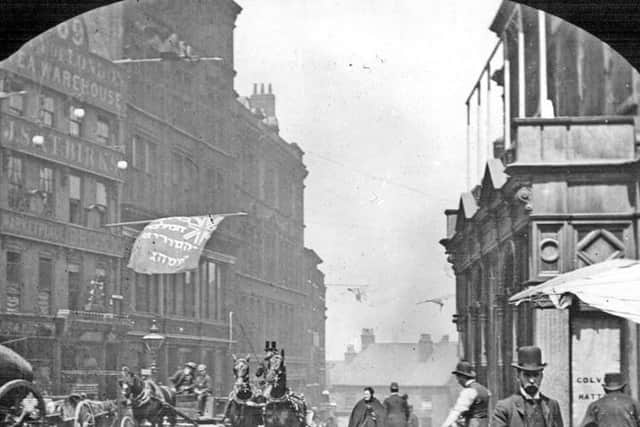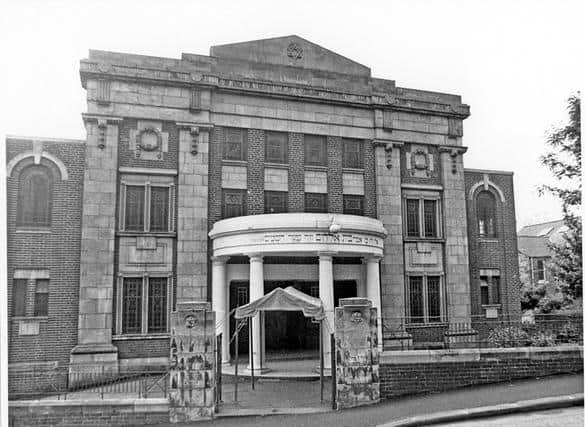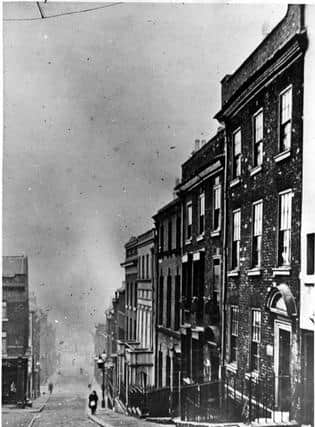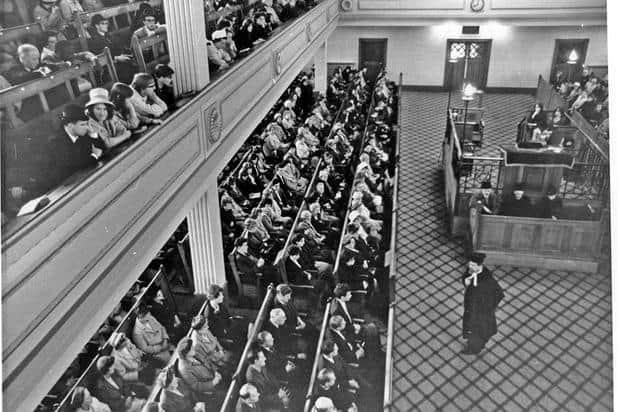How Sheffield’s Jewish community have made an impact on the city
and live on Freeview channel 276
According to Sheffield Libraries and Archives, there are indications of Jews being in Sheffield as early as 1797 and the community has continued to grow over the years, with around 800 Jews recorded in the city in 1900.
Some members have certainly made their mark in Sheffield, like Sue Pearson, who had a special tribute paid to her at Sheffield Council’s latest Holocaust Memorial Day vigil, following her passing in December 2020, aged 92.
Advertisement
Hide AdAdvertisement
Hide AdA spokesperson for Sheffield Council said: “Through her work and dedication to raising awareness of the holocaust, Sue made a huge impact and touched the hearts of those who came into contact with her. She will be sadly missed, but her legacy will live on.”


Sue came to Sheffield from Prague on the Kindertransport in 1939 at the age of 11, leaving her parents behind.
Her passion for education led to her being awarded an MBE for her services in 1985.
Elements of Sue’s life story on arriving into Sheffield are echoed amongst many other members of the city’s Jewish community, who fled from persecution in Eastern Europe.
Advertisement
Hide AdAdvertisement
Hide AdAlthough some settled in Sheffield, others passed through to continue onto Manchester and Liverpool.


Those who decided to start a new life in Sheffield set up businesses as watchmakers, jewellers and tailors.
As more Jews arrived, Scotland Street and the West Bar areas of Sheffield appeared to be where most of Sheffield’s Jewish community chose to establish themselves.
Paradise Square was also a place which was the centre of Jewish life in the early years of the twentieth century.
Advertisement
Hide AdAdvertisement
Hide AdAs the community grew, more synagogues were built and Sheffield’s Jewish community was said to be one of the first in the country to adopt Modern Hebrew for its synagogue services.


Individuals have shared their life experiences and thoughts about living in Sheffield through a series of interviews as part of the Witness project, which has been conducted by Sheffield University’s History Department over several years.
Avril Lappin said: “For me, growing up in the late 50’s and heady 1960s, Sheffield was a wonderful place to be. It was warm and welcoming and safe, yet at the same time outward looking and aspirational.”
She described Sheffield’s Jewish community as ‘mainly professional middle class, or aspiring middle class, with a number of wealthy businessmen in the mix’.
Advertisement
Hide AdAdvertisement
Hide AdAnother interviewee, Judy Simons, told of her father, David Brown, was orphaned after his parents’ deaths aged six, and was brought up in Sheffield by his grandparents, Mark and Fanny Woolman.


The family settled in Sheffield having travelled from Lithuania in the 1860s.
Although many individuals remember fond memories of being in Sheffield, some have spoken about difficulties.
Sonia Howard, for example, described the prejudices she has had to face ‘simply because of her religion’.
Advertisement
Hide AdAdvertisement
Hide AdShe feels that people are more comfortable amongst their ‘own’ people, but she highlights that the Jewish community is also ‘shrinking’.